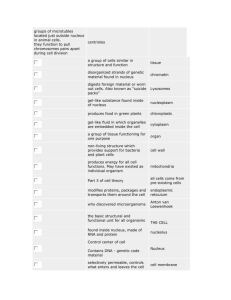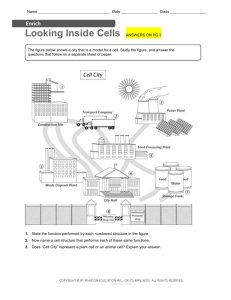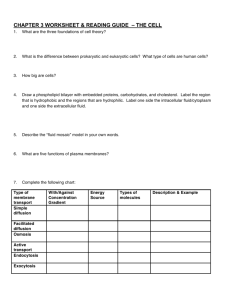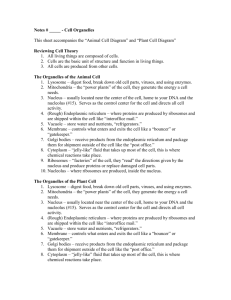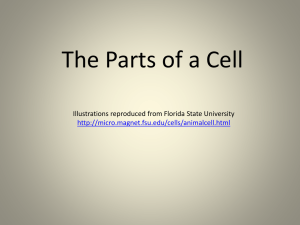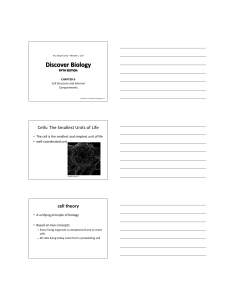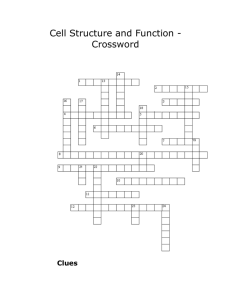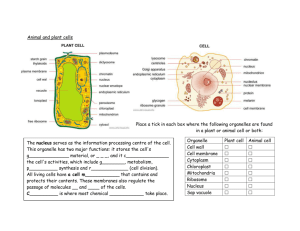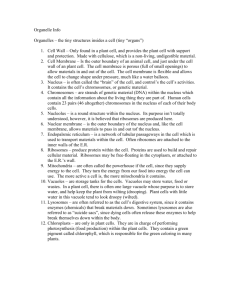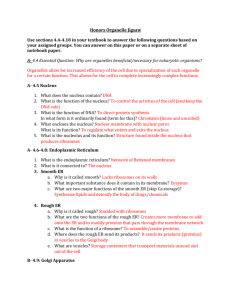Cell Wall
advertisement
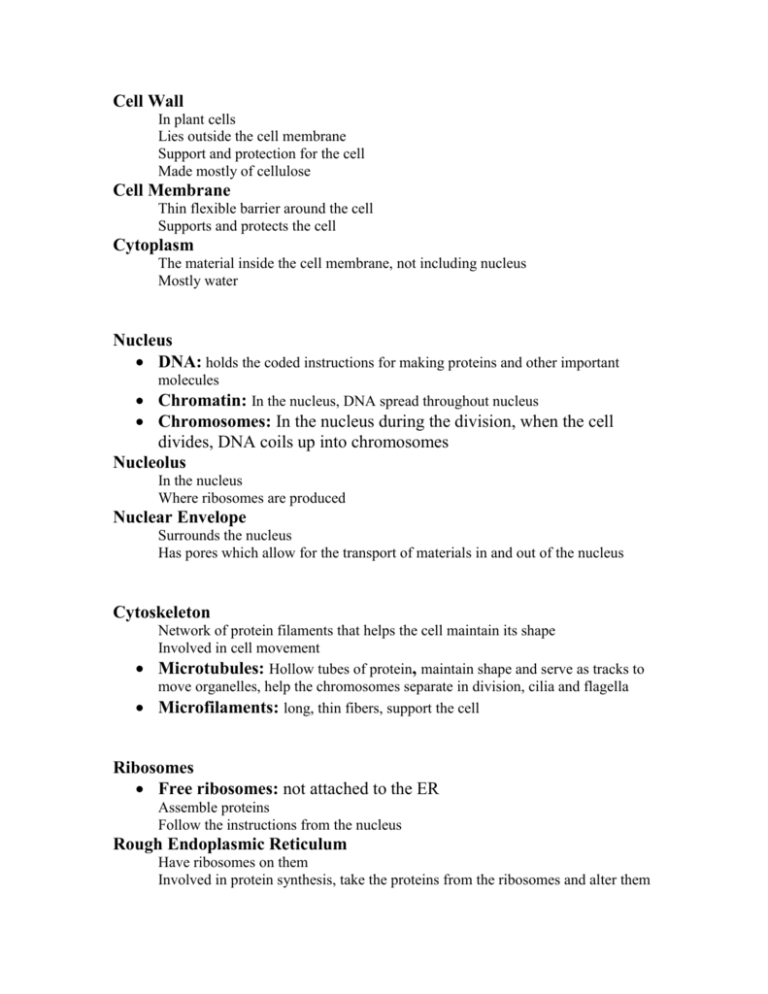
Cell Wall In plant cells Lies outside the cell membrane Support and protection for the cell Made mostly of cellulose Cell Membrane Thin flexible barrier around the cell Supports and protects the cell Cytoplasm The material inside the cell membrane, not including nucleus Mostly water Nucleus DNA: holds the coded instructions for making proteins and other important molecules Chromatin: In the nucleus, DNA spread throughout nucleus Chromosomes: In the nucleus during the division, when the cell divides, DNA coils up into chromosomes Nucleolus In the nucleus Where ribosomes are produced Nuclear Envelope Surrounds the nucleus Has pores which allow for the transport of materials in and out of the nucleus Cytoskeleton Network of protein filaments that helps the cell maintain its shape Involved in cell movement Microtubules: Hollow tubes of protein, maintain shape and serve as tracks to move organelles, help the chromosomes separate in division, cilia and flagella Microfilaments: long, thin fibers, support the cell Ribosomes Free ribosomes: not attached to the ER Assemble proteins Follow the instructions from the nucleus Rough Endoplasmic Reticulum Have ribosomes on them Involved in protein synthesis, take the proteins from the ribosomes and alter them Smooth Endoplasmic Reticulum Synthesis of lipids Golgi Apparatus Takes proteins from the ER and further alters them Sends them proteins to their final destination Lysosomes Filled with enzymes Break down food particles Break down organelles Vacuoles Saclike structure Stores water, salts proteins and carbohydrates Act as support in plant cells Chloroplasts Mostly found in plants Use the energy from the sun to make food: photosynthesis Chlorophyll: Green pigment found in chloroplasts, traps sunlight Mitochondria Release energy from stored food molecuels Cilia Made of microtubules For locomotion Flagella Made of microtubules For locomotion
